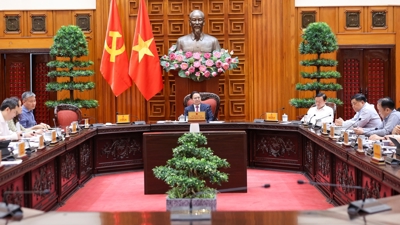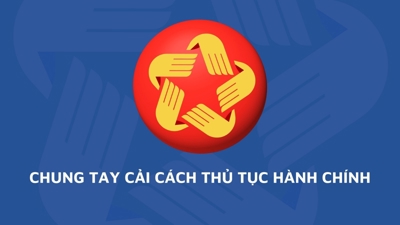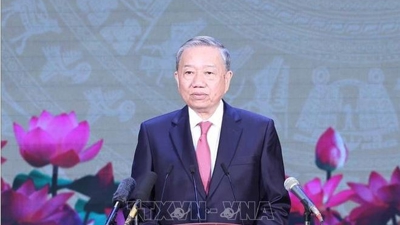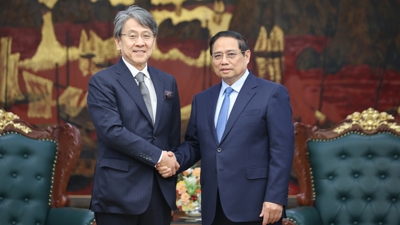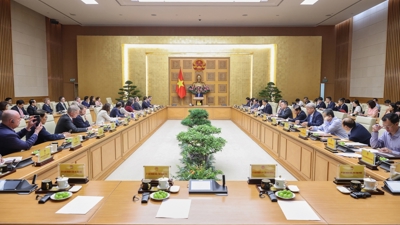Foxconn ready to help Vietnam train technology workforce
During his meeting with Prime Minister Pham Minh Chinh in Tianjin, China, Foxconn Industrial Internet (FII) President and CEO Brand Cheng pledges to expand collaboration in areas such as AI data centers, green manufacturing and sustainable development.
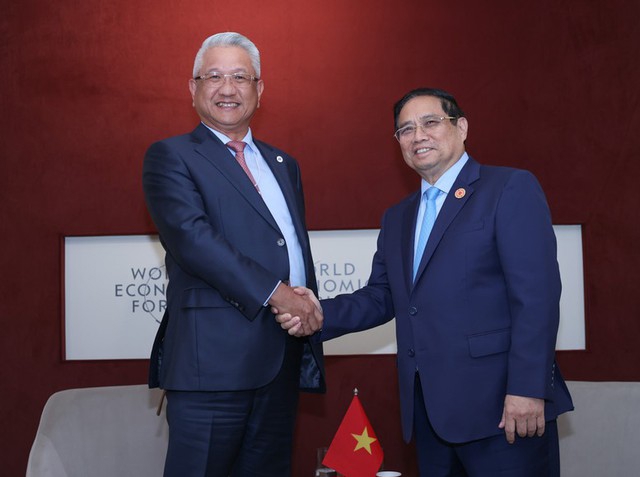
At a meeting with Prime Minister Pham Minh Chinh in Tianjin, China, on June 25, on the sidelines of the 16th Annual Meeting of the New Champions of the World Economic Forum (WEF), Foxconn Industrial Internet (FII) President and CEO Brand Cheng stated that his company stands ready to help Vietnam train technology workforce and expand collaboration in areas such as AI data centers, green manufacturing and sustainable development, according to a report from the Government News.
He expressed his hope that Vietnam will prioritize the approval of high-tech certification for Foxconn-affiliated companies.
The Vietnamese Prime Minister, for his part, hailed FII's effective investment activities and its ideas to promote future cooperation in Vietnam.
The PM urged FII to enhance the connectivity of businesses within its investment network to broaden research and development, as well as production and business operations in Vietnam, thereby contributing to the growth of the nation's technology ecosystem.
The PM called on Foxconn to boost technology transfer and establish a semiconductor chip manufacturing plant in Vietnam.
Vietnam creates favorable conditions for foreign investors, including FII, to conduct business activities smoothly, the Vietnamese leader said, hoping that Foxconn would share its experience to help build Vietnam's technology and innovation ecosystem and contribute to advancing the country's national digital transformation.
On the same day, at the meeting with CEO of PepsiCo Asia Pacific Anne Tse, the PM suggested PepsiCo continue to explore and expand its investment cooperation in Vietnam, and serve as a bridge to encourage U.S. businesses and PepsiCo's partners to increase their investment in the country.
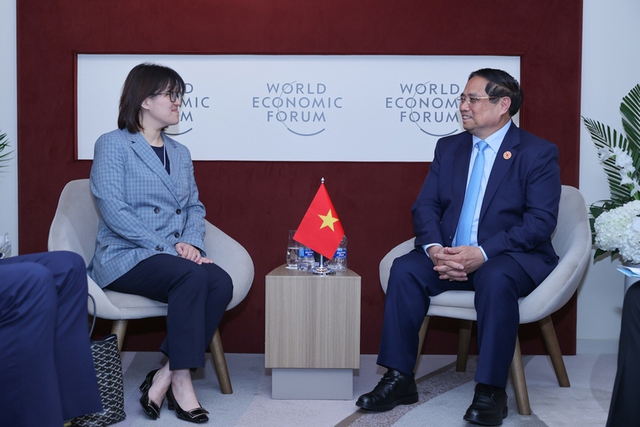
He called on the company to invest in deep processing of Vietnamese agricultural products so that these products can carry the Pepsi brand, thereby enhancing their value.
In addition, PepsiCo is encouraged to cooperate and support Vietnamese businesses and farmers in enhancing their production capacity to improve competitiveness and integrate into global supply chains.
The company is also expected to assist Vietnam in transferring knowledge, experience, techniques, and modern solutions and technologies to help partner enterprises participate in the economic restructuring process, aligned with a shift toward a green and sustainable growth model.
Ms. Tse, for her side, said PepsiCo not only hopes to invest in food and beverage manufacturing plants in Vietnam but also to invest in the development of high-tech agriculture and processing, with the aim of supplying both the domestic market and other countries in the region.
PepsiCo has been present in Vietnam for over 31 years and currently operates food and beverage processing plants in the country, with a total investment of nearly $1 billion.


